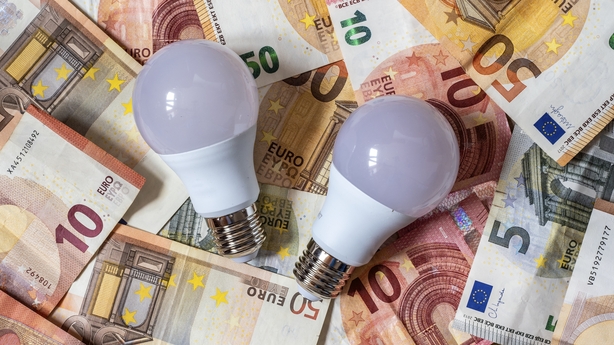The ESB Group has today reported an operating profit before exceptional items of €847m for the year to the end of December, up from €679m in 2021.
It said the increase was mainly due to the impact of higher wholesale prices in its generation and trading businesses both in Ireland and the UK.
This was offset, to some extent, by losses in the Customer Solutions businesses and lower levels of profitability in ESB Networks and NIE Networks.
ESB said that its generation and supply businesses are required to operate separately so increased profits from its generation division cannot be used to subsidise its Electric Ireland business.
EBS Group chief executive Paddy Hayes said he was conscious that this is a tough time for customers and that it is difficult to be talking about profits at a time when electricity prices remain high.
"All of the increase in profits have come from our generation businesses working in the wholesale markets in Britain and Ireland, and none of those profits have come from our residential customer book, in fact we made a decision to forego profits in our residential customer book," he said.
We need your consent to load this rte-player contentWe use rte-player to manage extra content that can set cookies on your device and collect data about your activity. Please review their details and accept them to load the content.Manage Preferences
"I think it is important to emphasise that because we operate under licence we are not in a position to use increased profits in generation to reduce the electricity prices for our residential retail customers," the CEO said.
"But what we have done with the profits is, we have agreed with the Government to pay an enhanced dividend of €327 million this year, which is €200 million more than last year," he added.
Wholesale energy prices have been coming down steadily since last August, but the ESB CEO could not say when these decreases will be reflected in bills.
"Because it's a competitive market, I'm not in a position to make forward looking statements in relation to price but what I can say is when we are in a position to reduce prices, we will," Mr Hayes said.
Electric Ireland business did not make any profit in its residential electricity supply business in Ireland last year as it returned over €55m through a €50 credit to its more than 1.1 million residential customers in December.
It also increased its Hardship Fund to €5m.

ESB's Customer Solutions business, including Electric Ireland, reported an operating loss of €109m.
It said its financial performance within Ireland and Northern Ireland was down on previous years due to the €50 winter credit to residential customers in Ireland which eliminated any profit on residential electricity sales in Ireland.
Losses in its Great Britain retail business due to an increase in wholesale energy costs coupled with the regulatory mandated price cap resulted in an overall loss in customer solutions.
Operating profits at the ESB Networks division came in at €207m, down €202m on 2021 due to a decrease in revenue from regulated tariffs, higher operating costs and higher depreciation costs.
Meanwhile, operating profits at the company's NIE Networks in Northern Ireland came in at €64m, down €10m on 2021.
It said the fall was due to inflationary pressures on its cost base and increased staff costs.
Paul Stapleton, ESB's Chief Financial Officer, said the company recognises that high energy prices are difficult for its customers.
"2022 has been an extraordinary year in global energy markets with volatile and high wholesale prices leading to exceptionally high profits from ESB's generation businesses in Ireland and Great Britain," Mr Stapleton said.
He said the company last year saw record levels of capital investment of €1.4 billion in critical energy infrastructure and network resilience, cementing its commitment to achieving net zero emissions by 2040.
"As a regulated entity, ESB is required to operate Electric Ireland, its supply business, on a standalone basis. It is not permitted to subsidise that business (including the prices that it charges to its customers) with revenues earned from its networks or generation businesses," he said.
"Electric Ireland did not make any profit in its residential electricity supply business in Ireland last year as we returned more than €55m through a €50 credit to each of our more than 1.1 million residential customers in December and increased our Hardship Fund to €5m," he added.
Paddy Hayes also said today that the ESB will be involved in the construction of the North-South Interconnector.
"Ireland is a small electricity system, particularly as we get increasing levels of wind, more interconnection and more network is really good for improving the resilience of the system, reducing costs and allowing more renewables onto the system," he said.
When asked if he foresees Compulsory Purchase Orders being used to secure land on which to build the Interconnector, Mr Hayes said he had not read the report yet and had not given thought to CPOs.
